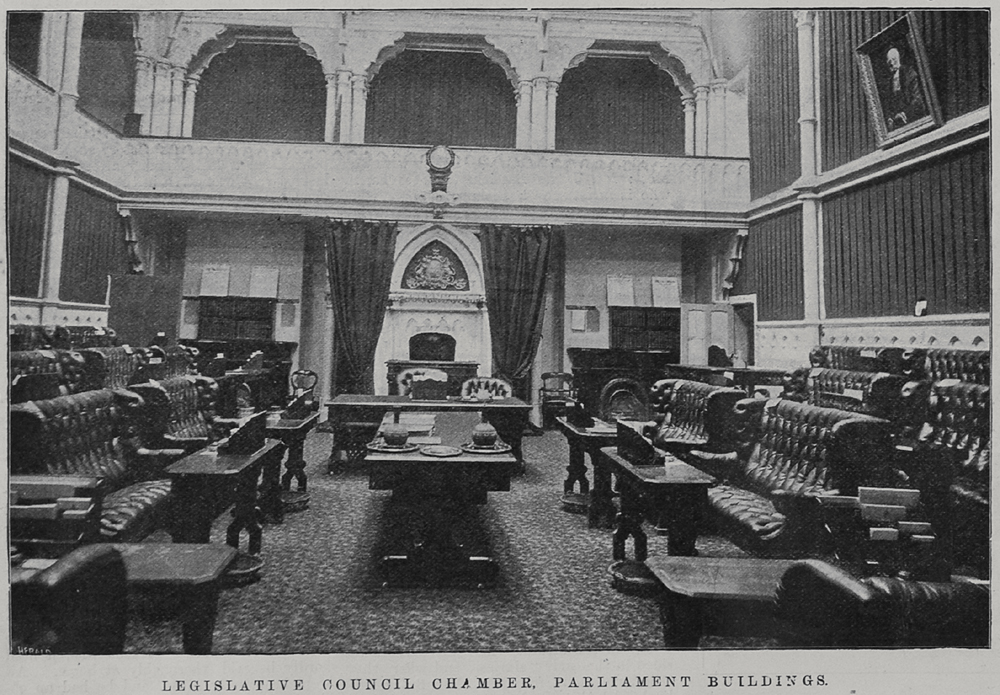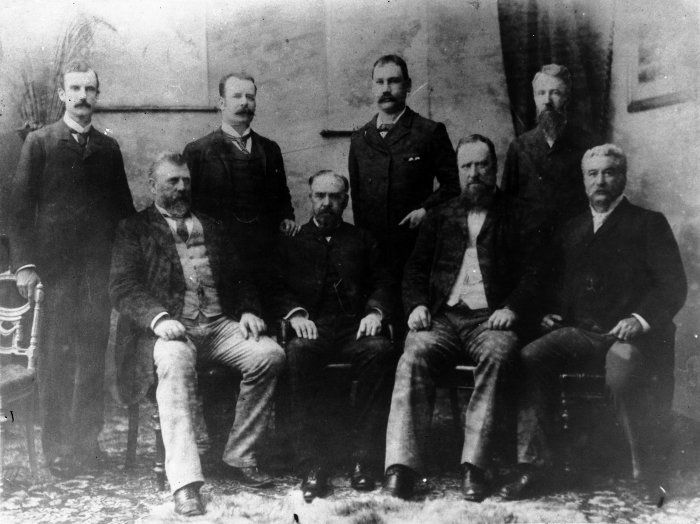|
Hamilton Gilmer
Hamilton Gilmer (1838 – 25 June 1919) was a member of the New Zealand Legislative Council from 22 January 1907 to 21 January 1914, when his term ended. He was appointed by the Liberal Government He was from Wellington, and died at his home there on 25 June 1919. Gilmer was buried at the Bolton Street Cemetery. References 1838 births 1919 deaths Members of the New Zealand Legislative Council New Zealand Liberal Party MLCs Politicians from Wellington City Burials at Bolton Street Cemetery {{NewZealand-politician-stub ... [...More Info...] [...Related Items...] OR: [Wikipedia] [Google] [Baidu] |
New Zealand Legislative Council
The New Zealand Legislative Council was the upper house of the General Assembly of New Zealand between 1853 and 1951. An earlier arrangement of legislative councils for the colony and provinces existed from 1841 when New Zealand became a colony; it was reconstituted as the upper house of a bicameral legislature when New Zealand became self-governing in 1852, which came into effect in the following year. Unlike the elected lower house, the House of Representatives, the Legislative Council was wholly appointed by the governor-general. The New Zealand Constitution Act 1852 had authorised the appointment of a minimum of ten councillors. Beginning in the 1890s, the membership of the upper house became controlled by government of the day. As a result, the Legislative Council possessed little influence. While intended as a revising chamber, in practice, debates and votes typically simply replicated those in the lower house. It was abolished by an Act of Parliament in 1950, with ... [...More Info...] [...Related Items...] OR: [Wikipedia] [Google] [Baidu] |
Liberal Government Of New Zealand
The Liberal Government of New Zealand was the first responsible government in New Zealand politics organised along party lines. The government formed following the founding of the Liberal Party and took office on 24 January 1891, and governed New Zealand for over 21 years until 10 July 1912. To date, it is the longest-serving government in New Zealand's history. The government was also historically notable for enacting significant social and economic changes, such as the Old Age Pensions Act and women's suffrage. One historian described the policies of the government as "a revolution in the relationship between the government and the people". James Belich, quoted in Michael King ''The Penguin History of New Zealand'', page 259 Significant policies Economic * Passed the Industrial Conciliation and Arbitration Act 1894. This established a conciliation and compulsory arbitration system with the aim of providing the unions with the means of protecting their members. The act encou ... [...More Info...] [...Related Items...] OR: [Wikipedia] [Google] [Baidu] |
Wellington
Wellington ( mi, Te Whanganui-a-Tara or ) is the capital city of New Zealand. It is located at the south-western tip of the North Island, between Cook Strait and the Remutaka Range. Wellington is the second-largest city in New Zealand by metro area, and is the administrative centre of the Wellington Region. It is the world's southernmost capital of a sovereign state. Wellington features a temperate maritime climate, and is the world's windiest city by average wind speed. Legends recount that Kupe discovered and explored the region in about the 10th century, with initial settlement by Māori iwi such as Rangitāne and Muaūpoko. The disruptions of the Musket Wars led to them being overwhelmed by northern iwi such as Te Āti Awa by the early 19th century. Wellington's current form was originally designed by Captain William Mein Smith, the first Surveyor General for Edward Wakefield's New Zealand Company, in 1840. The Wellington urban area, which only includes urbanised ar ... [...More Info...] [...Related Items...] OR: [Wikipedia] [Google] [Baidu] |
Bolton Street Cemetery
Bolton Street Memorial Park, formerly known as Bolton Street Cemetery, is the oldest cemetery in Wellington, New Zealand. Dating back to 1840, many notable people are buried here. Situated in the suburb of Thorndon, the Wellington City Council's memorial trail number five covers the Bolton Street Memorial Park and visits notable graves, points of interest, lookouts and buildings. History The park's history could probably be the history of those buried there; old pioneers are buried in the Victorian-type cemetery. Established as a cemetery in 1840 on the outskirts of the new town of Wellington, separate burial areas were designated for Anglicans, Jews and Roman Catholics. Many notable people of the town were buried there, including William Wakefield, Wellington's founder. It was closed for burials in 1892, except for the new burials of kins; this was due to inadequate space as the city grew. In 1960, the City Council's urban plan established a need for a motorway, a part of w ... [...More Info...] [...Related Items...] OR: [Wikipedia] [Google] [Baidu] |
1838 Births
Events January–March * January 10 – A fire destroys Lloyd's Coffee House and the Royal Exchange in London. * January 11 – At Morristown, New Jersey, Samuel Morse, Alfred Vail and Leonard Gale give the first public demonstration of Morse's new invention, the telegraph. * January 11 - A 7.5 earthquake strikes the Romanian district of Vrancea causing damage in Moldavia and Wallachia, killing 73 people. * January 21 – The first known report about the lowest temperature on Earth is made, indicating in Yakutsk. * February 6 – Boer explorer Piet Retief and 60 of his men are massacred by King Dingane kaSenzangakhona of the Zulu people, after Retief accepts an invitation to celebrate the signing of a treaty, and his men willingly disarm as a show of good faith. * February 17 – Weenen massacre: Zulu impis massacre about 532 Voortrekkers, Khoikhoi and Basuto around the site of Weenen in South Africa. * February 24 – U.S. Representatives William J. Graves of K ... [...More Info...] [...Related Items...] OR: [Wikipedia] [Google] [Baidu] |
1919 Deaths
Events January * January 1 ** The Czechoslovak Legions occupy much of the self-proclaimed "free city" of Pressburg (now Bratislava), enforcing its incorporation into the new republic of Czechoslovakia. ** HMY ''Iolaire'' sinks off the coast of the Hebrides; 201 people, mostly servicemen returning home to Lewis and Harris, are killed. * January 2– 22 – Russian Civil War: The Red Army's Caspian-Caucasian Front begins the Northern Caucasus Operation against the White Army, but fails to make progress. * January 3 – The Faisal–Weizmann Agreement is signed by Emir Faisal (representing the Arab Kingdom of Hejaz) and Zionist leader Chaim Weizmann, for Arab–Jewish cooperation in the development of a Jewish homeland in Palestine, and an Arab nation in a large part of the Middle East. * January 5 – In Germany: ** Spartacist uprising in Berlin: The Marxist Spartacus League, with the newly formed Communist Party of Germany and the Independent Social Democ ... [...More Info...] [...Related Items...] OR: [Wikipedia] [Google] [Baidu] |
Members Of The New Zealand Legislative Council
Member may refer to: * Military jury, referred to as "Members" in military jargon * Element (mathematics), an object that belongs to a mathematical set * In object-oriented programming, a member of a class ** Field (computer science), entries in a database ** Member variable, a variable that is associated with a specific object * Limb (anatomy), an appendage of the human or animal body ** Euphemism for penis * Structural component of a truss, connected by nodes * User (computing), a person making use of a computing service, especially on the Internet * Member (geology), a component of a geological formation * Member of parliament * The Members, a British punk rock band * Meronymy, a semantic relationship in linguistics * Church membership, belonging to a local Christian congregation, a Christian denomination and the universal Church * Member, a participant in a club or learned society A learned society (; also learned academy, scholarly society, or academic association) is an ... [...More Info...] [...Related Items...] OR: [Wikipedia] [Google] [Baidu] |
New Zealand Liberal Party MLCs
New is an adjective referring to something recently made, discovered, or created. New or NEW may refer to: Music * New, singer of K-pop group The Boyz Albums and EPs * ''New'' (album), by Paul McCartney, 2013 * ''New'' (EP), by Regurgitator, 1995 Songs * "New" (Daya song), 2017 * "New" (Paul McCartney song), 2013 * "New" (No Doubt song), 1999 *"new", by Loona from '' Yves'', 2017 *"The New", by Interpol from ''Turn On the Bright Lights'', 2002 Acronyms * Net economic welfare, a proposed macroeconomic indicator * Net explosive weight, also known as net explosive quantity * Network of enlightened Women, a conservative university women's organization * Next Entertainment World, a South Korean film distribution company Identification codes * Nepal Bhasa language ISO 639 language code * New Century Financial Corporation (NYSE stock abbreviation) * Northeast Wrestling, a professional wrestling promotion in the northeastern United States Transport * New Orleans Lakefront Ai ... [...More Info...] [...Related Items...] OR: [Wikipedia] [Google] [Baidu] |
Politicians From Wellington City
A politician is a person active in party politics, or a person holding or seeking an elected office in government. Politicians propose, support, reject and create laws that govern the land and by an extension of its people. Broadly speaking, a politician can be anyone who seeks to achieve political power in a government. Identity Politicians are people who are politically active, especially in party politics. Political positions range from local governments to state governments to federal governments to international governments. All ''government leaders'' are considered politicians. Media and rhetoric Politicians are known for their rhetoric, as in speeches or campaign advertisements. They are especially known for using common themes that allow them to develop their political positions in terms familiar to the voters. Politicians of necessity become expert users of the media. Politicians in the 19th century made heavy use of newspapers, magazines, and pamphlets, as well a ... [...More Info...] [...Related Items...] OR: [Wikipedia] [Google] [Baidu] |




